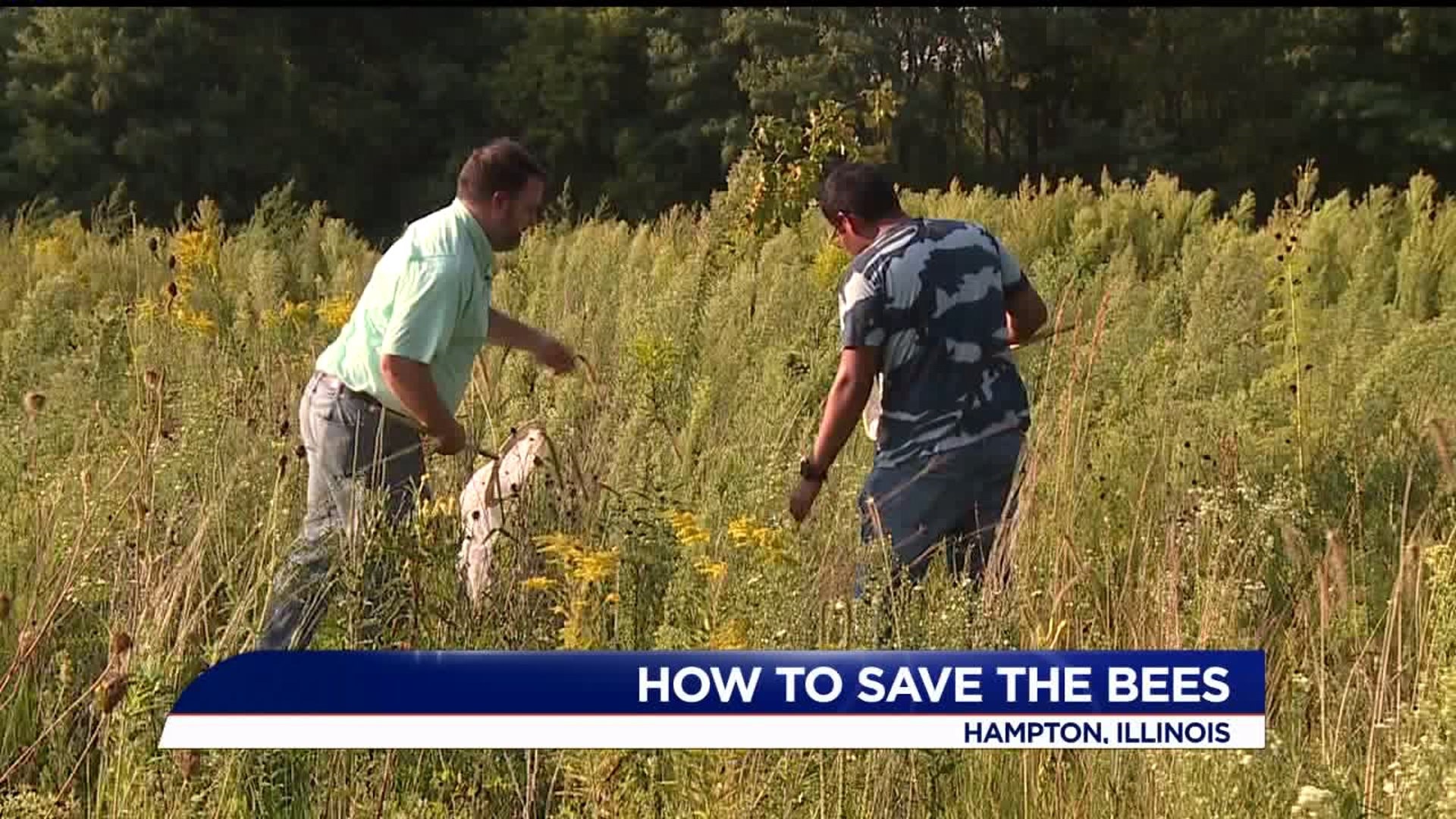HAMPTON, Illinois -- A research team in the Quad Cities is fighting to bring a native bumblebee back from the brink of extinction.
The rusty patched bumblebee used to be found all over the Midwest and North East, according to Assistant Professor of Biology at Blackhawk College Isaac Stewart.
Now, it's found in just a handful of states since its population has declined 96 percent in just the last few decades.
"If we lose [bees], we lose our food supply," Stewart says. "One out of every three bites we eat, pollinated by an insect pollinator. If we lose those insects, we lose that food supply."
Smith and Stewart say one of the most important things people can do to help bees is plant native flowers which helps them stay resilient against disease, pesticides and habitat loss.
"If they're well-fed, if there's enough floral resources, then they can resist a lot of that and continue to thrive in ecosystems," Stewart says.
The U.S. Fish and Wildlife Service has a list of plants the rusty patched bumblebee likes to feed off of. The Xerces Society also has lists of native plants in Iowa and Illinois.
Stewart and some of his students are trying to find the rusty patched bumblebee at the Illiniwek Forest Preserve. They're also studying the bee population and documenting how it changes over the years.
“What we’re looking for are any bee species we can find," he says. "And we’re really looking for diversity.”
Stewart says different kinds of bees pollinate different plants. Losing one bee species could be detrimental to the plants they pollinate, whether they're flowers or plants grown for eating.
Assistant Park Ranger Ross Smith at the Illiniwek Forest Preserve planted a native prairie area at the park two years ago to help bring pollinators back. He hopes the population of the rusty patched bumblebee found at Niabi Zoo earlier this start a new colony at Illiniwek.
"They're kinda like the passenger pigeon of the bee world, in terms of, ten years ago they were everywhere, and now they're not," he says.

